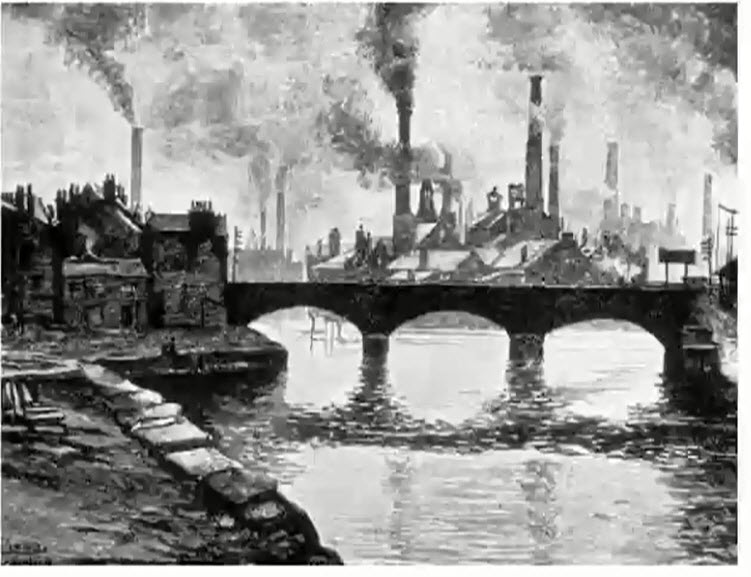1. The Old Model (To 3 min.)
1. discuss
2. watch without sound
3. listen
1. How do we educate people for the 21st Century, when don't even know what the economy will look like next week?
2. How do we educate children so they have as sense of cultural identity, while being part of the process of globalisation?
3. What do you think is wrong with our public education system?
4. Where does our public education system come from?
When do you think people started to be able to go to public schools for free?
How was this possible?
Where do you think it happened first?
Why do you think it happened?
5. What in your opinion is real intelligence?
Task: watch the animated drawing for 3 minutes and see if you can understand the main points of the talk.
Discuss what you understood.
Listen and check
Changing Education Paradigms

2. Watch again
"It's not a guarantee anymore" (What is "It"?). "Of course we should raise them" (What is "them"?). "It was conceived in the intellectual culture of the Enlightenment and in the economic circumstances of the Industrial Revolution." (What is "it"?). "Many people objected to it" (what was "it"?). "There's also built into it a whole series of assumptions about social structure and capacity" (What is "it"?). "Running right through it was an intellectual model of the mind" (What is "it"?)
3. ADHD (from 3 min to 5.30)
Before watching
What is ADHD? What causes it? Why do some people call it an "epidemic"?
After watching - discuss these comments:
"It's still a matter of debate." (What is "it"?)
"They're being besieged with information... from every platform." (Who is "they"?)
"It's a fictitious epidemic." (What is "it"?)
4. The Arts (to 6.30)

Before watching:
What do we learn from the arts? What do they especially teach us?
Put some things down
.
.
.
.
.
.
.
.
"they are the victims of this mentality" (What is "they"? What is "this mentality"?)
Discuss:
Why do you think it is that, globally, public education is moving away from the arts?
5. Changing the Paradigm (to 7.40)
"I believe we have a system of education which is modeled in the interests of industrialisation and in the image of it."
(What examples does Robinson give of schools modeled in the image of industrialisation?)
"I believe we've got to go in the exact opposite direction" (From what?)

6. Divergent thinking (to 10.20)
Before watching:
What is creativity?
What capacities do we need in order to be creative?
What does "diverge" mean? What is the opposite of diverge?

After watching:
What is a longitudinal study?
What did the study show about our capacity for divergent thinking?
"...outside schools that's called collaboration" (What is "that"?)
Discuss the diagram.
(I prefer to speak of learning modes - not styles - can you guess why?)
What sort of subjects or skills require you to learn in a particular mode?
Mathematics, creative writing, history, learning to play an instrument, debating skills, advertising and marketing, business, law, philosophy, visual arts, biology, chemistry, learning a foreign language, physical education, team sports, statistics, computer sciences, medicine, nursing and health, social work...
7. Conclusion (to the end)
In groups can you think back over what Robinson has said. What have been his main points about our education system? Do you agree with these? What problems about the system has stressed? Has he missed any important ones? What are the solutions in his opinion? Are these attainable?
Why do you think globalisation is making education more oriented towards standardisation?
After watching:
"It's in the gene pool of education" (What is "it"?)
"and see it for what it is - a myth." (What is "it"?)
If we judge them separately, we form a kind of dis-junction between them and their natural learning environment." (Who is he speaking about?)
"...and the habitats that they occupy" (What is "they"?)

Has Robinson's talk taught anything about what learning in the 21st Century is about?
Note taking:
1. Every country is _________ education.
2. There are __ reasons: ________ and ________
3. By doing what was done in the past, schools are ________ many children.
4. A degree is no longer a ________ of a career.
5. The current system was created during the _________ in the ________ age.
6. Public education was ________ idea.
7. The Enlightenment saw intelligence as a capacity for ______ reasoning.
8. Many people who are intelligent, believe they are not, because they are _______ according to the Enlightenment view of intelligence.
9. ADHD may exist but it is not an "_______"
10. Children are being _______ with information from every _______
11. The instance of ADHD has risen in _______ with the rise of standardised testing.
12. The arts address the idea of _________ experience.
13. We have an education system that is modelled in the ______ of industrialism and in the _____- of it.
14. We need to go in the opposite direction from ________
15. Creativity is the ability to have ideas that have ______
16. Divergent thinking is a capacity to see ________ answers, not one.
17. The experiment shows that we all have a capacity for divergent thinking but it ______
18. We have to think differently about human _____
19. We have abandon the dichotomy of ____ and non-_______ intelligence
20. _______ is the stuff of growth.
21. We have to change the habits of our __________.



No comments:
Post a Comment